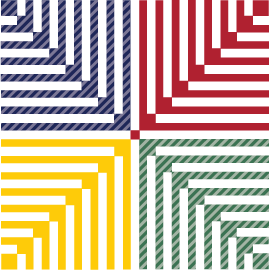Partners for Peace follows a delegation of 13 American and Canadian women traveling to Israel and Palestine under the leadership of Nobel Peace Laureates Jody Williams and Mairead Maguire of the Nobel Women’s Initiative. Their quest is to learn about the decades-long conflict and to reach out in solidarity to women activists on both sides of the conflict. Confronted by the complex and brutal depth of the conflict, they are inspired by the commitment and sacrifices of the women they meet, and challenged to ask difficult questions of themselves—and of us all.
We chatted with director Ed Kucerak about his work in general and his experience making Partners for Peace.


BPFF: What is your background in film?
EK: I first got involved in the film industry two decades ago when I launched Kublacom Pictures, an independent film and television production company, based in Ottawa, Canada. It had always been my dream to be a film director, especially in the documentary genre. Partners for Peace is the fourth documentary I have directed. I am privileged to have had the opportunity to direct several other interesting and challenging films.
How Can a Boy (2012) tells the story of a young Karen man who fled from his village at the age of 10 when it was attacked by the Burmese military and who deals with loss and the guilt of being one of the lucky ones to survive the horrors of the civil war.
This is My Witness (2011), also about Burma, tells the stories of courageous women who testified at an international people’s tribunal in New York, about the brutality they experienced at the hands of the Burmese military.
Closer to home, One of the Last (2007) tells the story of a remarkable Jewish family that has made a lasting impact on an entire community through an enduring dedication to their bakery business. The family spans four generations from the Ukraine in the early 1900s to present-day Ottawa.
In addition to directing films, I have have produced a number of documentaries, including Lady in The Garden (2014), Derrickman (2005), and The Secret Lives of Butterflies (2003).
I am an active member of the Documentary Organization of Canada and Ottawa’s SAW Video Media Art Centre.
BPFF: How did you first get involved in this film? What led you do it?
EK: My colleague writer/producer Jane Gurr and I had previously worked with the Nobel Women’s Initiative on another film, This is My Witness. This was an excellent collaboration and naturally led to further work together, on Partners for Peace.
Although there have been some excellent films made about the situation in Israel and Palestine, very few have dealt with how Israeli and Palestinian women feel about what is going on in Palestine. It is clear that their voices should be heard, so there was a need and an established collaboration between filmmakers and activists to make it happen.
BPFF: Had you yourself been to Palestine or known about this issue before making this film?
EK: Prior to making this film, I had a general awareness of the ongoing conflict in Israel and Palestine but I have never been there. Working on the project allowed me to delve much more deeply into the history and current dynamics of the issue.
BPFF: Did you accompany the delegation on their journey to Israel/Palestine, and if so, did the experience change you personally in any way?
Nobel Women’s Initiative worked with local Israeli and Palestinian women videographers to capture footage of the delegation as they travelled and met with grassroots women’s groups in the region.
Our team joined the project once they had returned. We reviewed the footage, were deeply affected by what we saw and heard, and thus were inspired to engage the project with determination, to do the best job we could, bringing the voices and stories of the women to audiences in the U.S. and Canada.
As a result, we’ve gained a lot of knowledge and new perspectives.
BPFF: What did you learn about the situation through making the film? How did you observe it changing the delegates?
EK: Working on the film allowed us to go on the journey with the delegates and to listen to Palestinians and Israelis talking about the impact of the situation in their daily lives. And to meet women who are passionate about finding a path to peace, despite the enormous challenges, and who actively seek to understand each other and to work in unison.
These were views of the situation that we had not seen in the mainstream media. We were affected by the brutality of the occupation and inspired by the possibilities for peace that the women seemed determined to find. We observed that the delegates became more certain in their points of view and more determined to working in whatever capacities they have, to push toward peace in the region.
BPFF: What was the greatest challenge or obstacle you faced while making the film?
EK: Our greatest challenge was finding footage and photographs that would help bring the harsh realities of the situation and the stories that the women were telling us to life. We were working with a very modest budget and thus had to rely mainly on donations of footage from individual videographers and human rights groups, a lengthy process.
We also worked with two videographers, one located in Israel and other in the West Bank, who captured b-roll footage to supplement what was recorded during the delegation itself. Working with them from afar was a challenge. And in one case we cancelled a shoot we had planned of a peaceful community march, because Israeli security forces appeared to be targeting videographers and journalists.
In addition, we filmed extensive interviews in three locations with the three of the delegates featured in the film — Jaclyn Friedman (Ottawa), Jody Williams (Williamsberg), and Lauren Embrey (New York) to flesh out the film’s story structure.
BPFF: How has the film been received since it was completed and released? Has the reception been different in the US vs. in other countries?
EK: The reception to the film in the US and Canada has been very positive. It has yet to screened elsewhere.
Here’s a sample of the feedback we have received:
“Meaningful, moving, important film. Thank you from the bottom of my heart, for taking the time, energy, and patience to make this.”
“… Interesting microcosm of the entire dispute between Israel/Palestine.”
“A very powerful film… it is riveting and a real roller-coaster of a journey. Jaclyn (delegate and feature subject in the film) is engaging and the narrative of her personal experience is very powerful.”
“It turned a very complex conflict into an easy to understand narrative — without shortchanging the challenges associated with peace. But most importantly, it served as a reminder of the incredible hardships people go through daily.”
BPFF: What are your hopes for the film from moving forward?
EK: We hope that the film will continue to be seen by audiences across the US and as well in many other countries. The Nobel Women’s Initiative is working to make the film available for screenings at universities and colleges in the US and Canada, including two upcoming screenings in November in San Diego and St Louis.
— Kate Rouhana for BPFF
Partners for Peace screens Tuesday, October 21, 2014 at the Cambridge Public Library at 6 pm. Delegate Jaclyn Friedman will engage in conversation following the film. The show is free and open to the public, and is co-presented by Jewish Voice for Peace-Boston. View the full festival schedule here.

